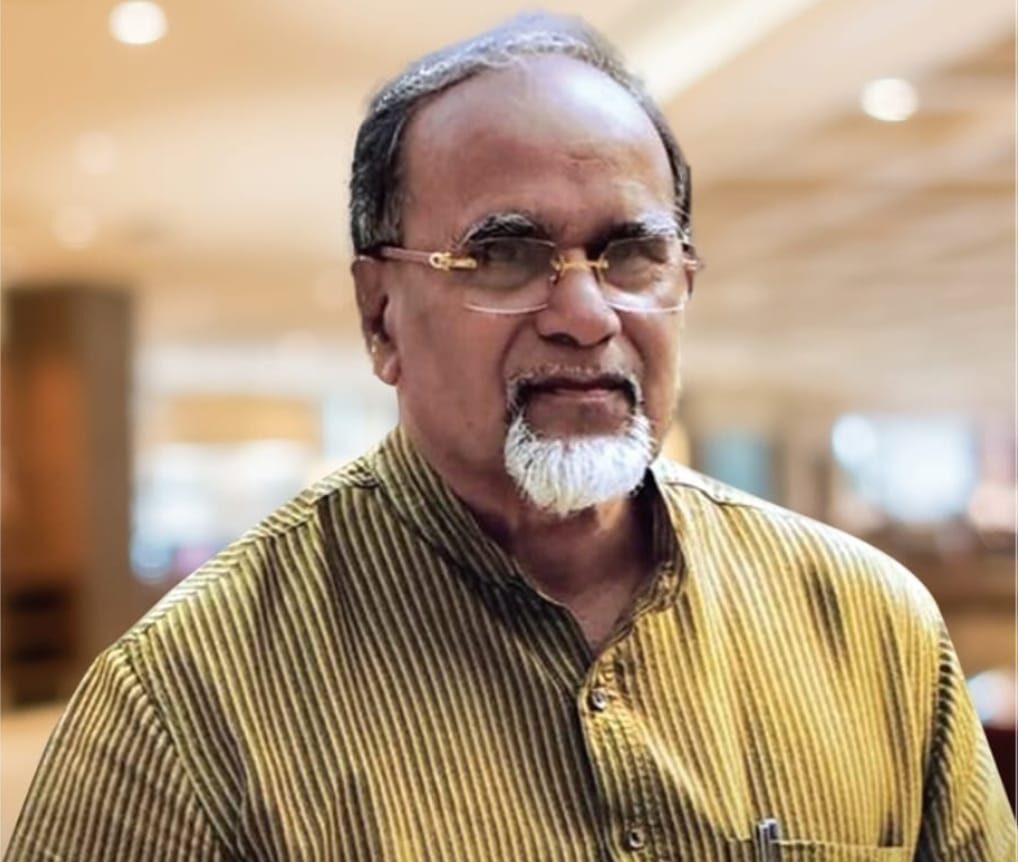Nigerians love Varkey Verghese mfr, a dynamic entrepreneur. The Verghese-Annie couple’s philanthropic works go beyond building old-age homes, orphanages, and de-addiction centres. He has built shelters for impoverished Nigerians and Indians and provided drinking water for parched Nigerian villages. His life is filled with exciting stories of challenging African safaris, infused with the Indian aroma of deeply rooted humanity. He still works hard to set Nigerians free from the burden of meningitis, malaria, and several health and nutritional disorders.
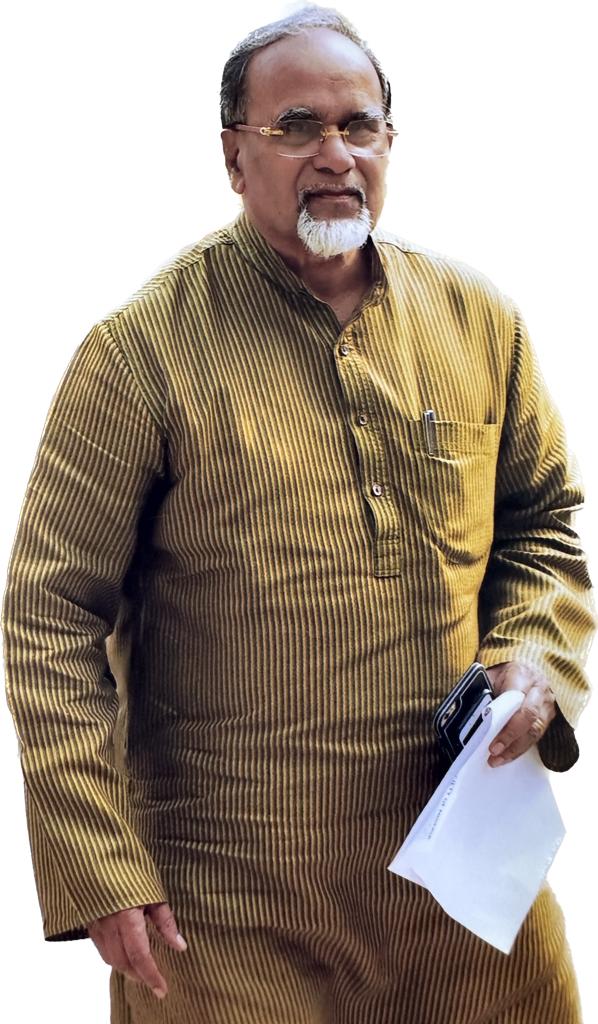
The Jawa Group’s 27 years carry, along with it, the saga of Nigerians’ life-saving experience and business success, saluting its founder’s acumen, vision, and integrity in business. The Group helps the African nation reduce healthcare concerns and enhance the quality of life for its citizens.
The Jawa Group is a leading pharmaceutical group in Nigeria, recognised for its advanced technology, manufacturing expertise, and dedication to the Nigerians. It has high-end manufacturing facilities for various products and sources up to 65 per cent of its local market demand globally. The Group helps Nigeria alleviate its disease burdens by adhering to national and international standards.
In the late 1950s, India was at the cusp of a Green Revolution aimed at achieving food self-sufficiency. Originally from Maramon of Pathanamthitta district of Kerala, Varkey Verghese mfr graduated, between the years 1957 and 1960, in Agriculture Science from the erstwhile Madras Agricultural College (Now, Tamil Nadu Agricultural University), Coimbatore. On the last day of his graduate examination, he received an appointment letter to join the Tamil Nadu state government as an Agricultural Extension Officer at Periakulam, near Madurai, Tamil Nadu. But he had nursed a bigger dream.
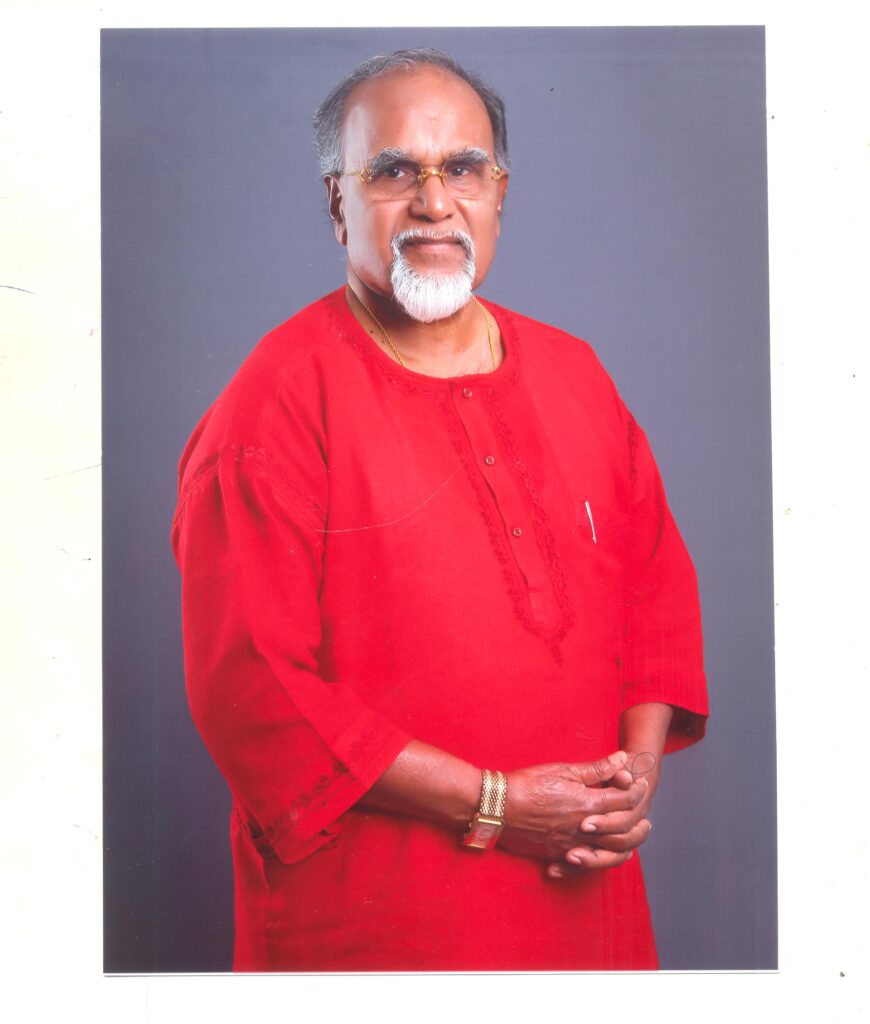
He accepted a state government job, perhaps reluctantly. He wanted to work in the private sector like other educated young people dreamed of in those days. Shortly afterwards, he joined Rallis India, a fertiliser company, as an Agronomist, shouldering the responsibility of product promotion and marketing. He spent 17 years at the company, rising through the ranks to become a Regional Manager. He then moved to Africa for a more challenging position and a significant change in his future life. Much has changed thereafter as he decided to set his destiny. Varkey Verghese mfr had a brief stint in government service before transitioning to the private sector, primarily in the wild African market. He eventually settled in Nigeria, where he and his wife, Annie, lived and worked for over half of their lives.
The Federal Government of Nigeria, recognising his contributions to the industry and society over the years, awarded him the prestigious National Award, Member of the Federal Republic (MFR). The second Indian to get this enviable recognition, Verghese, is still active in the Nigerian social circle. He feels the social vibrancy of Nigeria and serves the local underprivileged classes. Now aged 86, his philanthropic efforts extend beyond building orphanages, old-age homes, de-addiction centres, and shelters for impoverished Nigerians and Indians. He has built churches and provided drinking water for parched Nigerian villagers. An entrepreneur with high professional and moral standards, he is a remarkable social worker. He has lived a life full of exciting stories, recalling both good and bad experiences. He shared a critical moment from his early days in Africa in the 1980s, which nearly cost him his life. The moments of self-satisfaction he felt while serving the Indian and Nigerian communities, along with the extraordinary wisdom that the Almighty bestowed upon him, add a sweeter layer to his memories.
An opportunity arose for him to work in a distant, unfamiliar market in Kenya through a recruitment agency in the early 1980s. For well-educated people, the turbulent African markets were not the first choice, especially when there were flourishing opportunities at home. Still, he joined the Henly Group of Companies in Agbara as the head of marketing, where he worked for 19 years before leaving to establish his own company, Jawa Group. Bigger challenges at a young age were a source of joy for him. He faced initial struggles in the East African market of Kenya, followed by challenges in the West African market of Nigeria. All the experiences strengthened his resolve and deepened his faith. Despite the difficulties he encountered, the hard times made him more compassionate.
The owner of the Henly Group of Companies had big plans. Verghese mfr correctly identified that Kenya was a saturated market, and the group’s product lines had limited growth potential. However, West Africa had huge potential for some chemical products. He went to Nigeria to explore the possibilities of selling chemical products, which the country badly needed. A year after his service in Kenya, he went to Nigeria first to test the market potential for chemical products. His visit to Nigeria coincided with a difficult period for the country’s economy, and his new employer convinced him about the long-term potential of the Nigerian market. Incidentally, the procurement of licenses, a difficult task in those days, helped him easily penetrate the government departments. He rediscovered opportunities for some chemical products in the Nigerian market, where the new company had to build everything from scratch. His enthusiasm to take on a marketing challenge arose within him. He was set for a long-term business by deploying his experience, knowledge of the market and above all, great optimism.
Nigeria had a considerable Indian presence, and getting into trading would be a rat race, he convinced his boss, who had two companies – John Edge and Dhury Industries. John Edge was founded in Nigeria in 1981. At the same time, the Nigerian economic slowdown evaporated all his hope. The company owner, who had business interests in the East African market and London, recognised long-term opportunities in the large Nigerian market. Fortunately, the product identified by the company experienced a boom, which helped him establish a stronger position for the company more easily than he initially feared. He served as the Director of Operations at that company.
Obtaining a license in Nigeria in those days was like finding a pot of gold. John Edge had the license to sell some chemical products. With the licenses, on average, the company could realise a value of $6 against $1. The huge margin gave the business a big boost. The margin also compelled the company to set up a manufacturing unit for the product, which would further enhance the margin. Sodium silicate was easy to make in Nigeria because local raw materials, such as sand and soda ash, were readily available. Dhury Industries, founded in 1986, started producing aluminium sulphate, known as alum, for water treatment, thus becoming the pioneer in the Nigerian aluminium sulfate market. This coagulant removes suspended particles and impurities from water by settling all the impurities at the bottom. The company needed sulphuric acid to make aluminium sulphate, which led the company to backward integration. Dhury was the only company making aluminium sulphate in Nigeria for a long time. Drury is now the largest producer of aluminium sulphate and sulphuric acid on the entire West Coast of Africa.
After successful ventures in these products, the group diversified into the pharmaceutical business in 1987 with the founding of Chemech Laboratories, which later became Chemiron International and is now Chemiron Care. Nigeria always had a critical need for medicines, as essential as food and drinking water. Although the pharmaceutical business was a diversified venture, products like sand used for glassmaking had connections with the pharmaceutical industry.
After spending many years in an executive role and gaining insight into the Nigerian market for chemicals and pharmaceuticals, he founded Jawa International in 1999. He identified a significant opportunity in Nigeria’s pharmaceutical market due to the rising demand for various medications and the country’s burden of diseases like meningitis, malaria, and other viral infections.
Currently, about two-thirds of the medicines that Nigerians require are imported, making the healthcare system heavily import-dependent. “Yes, Nigeria holds great potential for pharmaceutical products; only 35 per cent of local demand is met domestically. However, the situation is changing, and private ventures now have opportunities,” says Verghese, who knows the Nigerian market intimately. Jawa Group’s core competence lies in the formulation of liquid orals and Externals. It makes 25 million bottles in various sizes annually in this category. It sells 10 million bottles of antibiotics, dry syrup and two million tubes of ointments and creams.
He started his own pharmaceutical company with a modest facility and staff, focusing on four different types of formulations: liquid orals, external liquids, syrups, and ointments and creams. The Group’s beta-lactam plant, which he started in 2020, was commissioned at the end of 2024. The Jawa Group plays a big role in tackling Nigeria’s major concerns of meningitis and malaria. “Our products for anti-malaria and anti-meningitis are very popular in Nigeria. We are also popular in post-recovery health tonics like Jawaron,” says MFR Verghese.
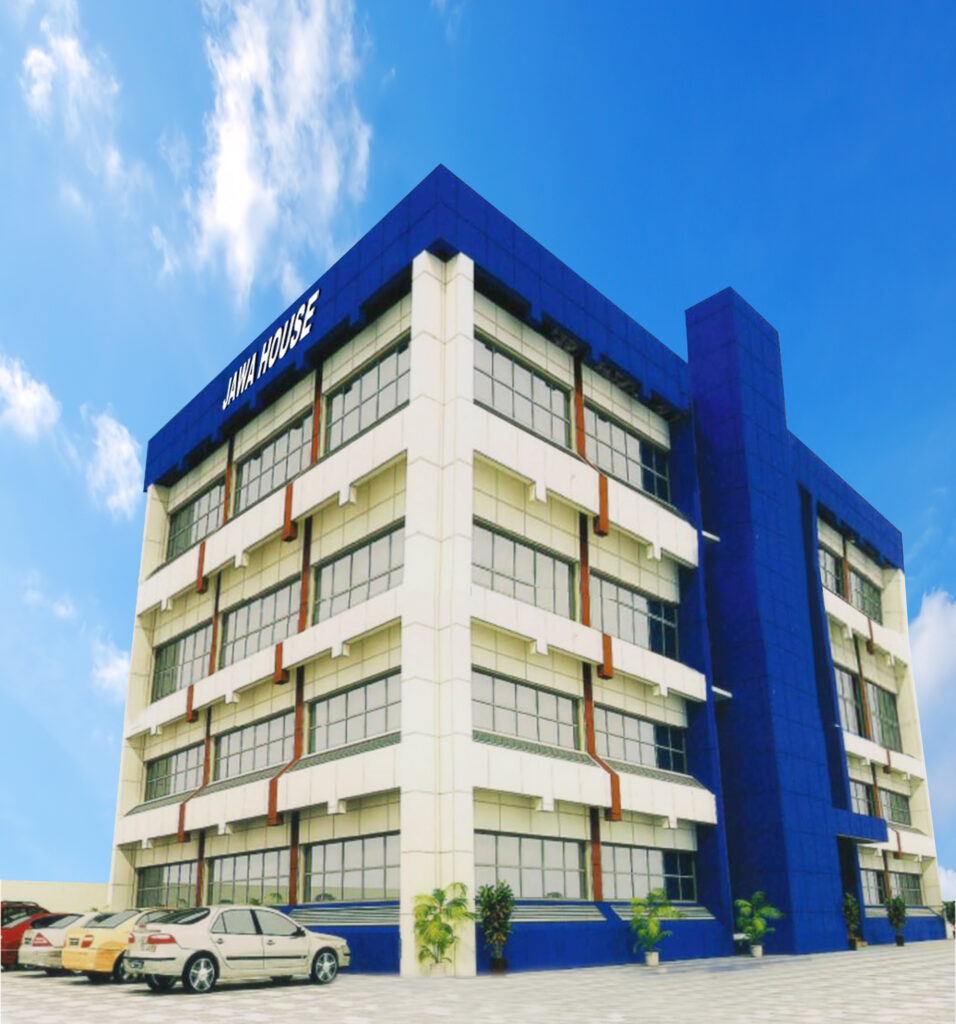
The Jawa Group consists of three outfits, Jawa International, Annie Pharma and Kattle Care. Jawa International is engaged in Over-The-Counter (OTC) products, the bulk of which are manufactured locally. It has in-house formulation units within Nigeria. Annie Pharma focuses on marketing ethical products; a bulk of them are imported. Kattle Care is involved in the business of animal drugs, and most of them are manufactured locally, with a few being imported. Now, the Jawa Group collectively has 150 products with a presence in antacids and antivirals.
Injectables, small volume parenteral, glucose, sodium chloride, saline. While the country has reached self-sufficiency in some of these products, it needs to go a long way in internally meeting the need for antibiotics and other therapeutic solutions. “However, I see things are changing for the better in the country, hopefully with better management of national resources,” he points out, expressing great hope about Nigeria’s well-being.
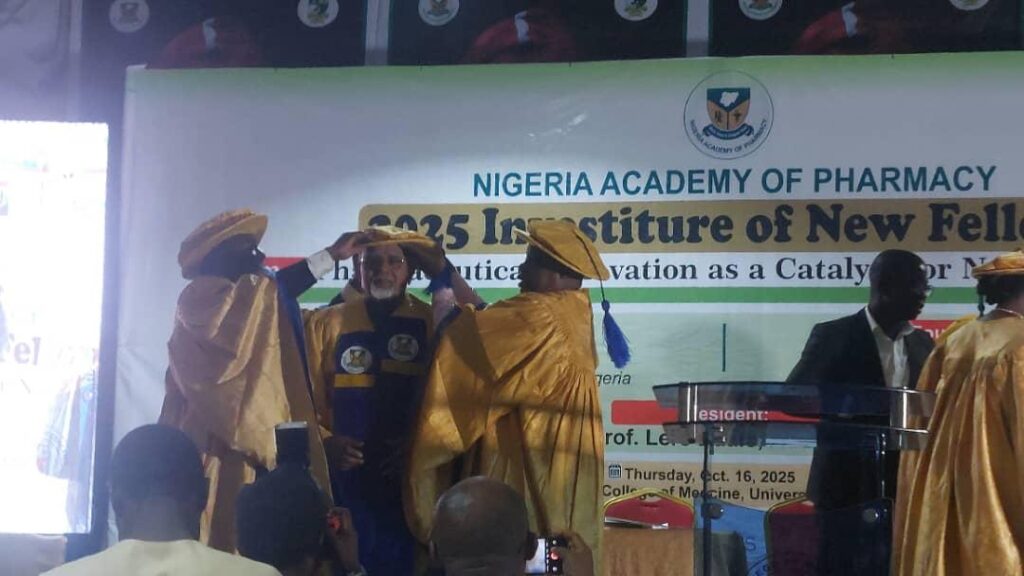
The sixth-largest African country has always been a big market for pharmaceutical products because of its huge population size, which is now roughly 230 million, more than 15 per cent of the combined African population. The challenge is that the government is keen to bring Nigeria on track. Institutions are helping local business meet their capital expenditure. The pharma business gets financial support from the Central Bank of Nigeria as a priority to help the health sector. “This helped us set up a manufacturing facility for beta-lactam antibiotics. Our clean track record as a business establishment and credit discipline with no history of repayment default made us eligible for lines of credit from the country’s central bank and other institutions. The institutional response encouraged us to expand our manufacturing capacity,” he recalls. The products used for treating bacterial infection have huge growth potential in the country. Jawa’s beta-lactam antibiotics plant, which complies with the WHO standard, is the biggest such facility in West Africa.

Over the years, due to the fast depreciation of the Nigerian currency, the naira, import-dependent trading became more challenging. Today, one US dollar costs nearly 1500 naira. Along with it, the high inflation and equally high interest rates reduce the natives’ buying power. But medicines should be affordable for natives. The ongoing economic reforms, which include dismantling all uncalled-for subsidies in the country, will make the economy stronger and push the purchasing power of the natives. The reforms will give good long-term results. Inflation has begun to decline. It fell from more than 34 per cent in December 2024 to 24 per cent in January 2025. These are good indications.
The Nigerian pharmaceutical market has been evolving with a proactive response to the rising local needs. The COVID-19 pandemic compelled Nigeria to think of making itself self-sufficient in antibiotics. When other countries, including India, stopped exporting antibiotics and antiviral doses to Nigeria, among other markets, Nigeria was badly hit. Nigeria is determined never to undergo such a shortage during the crisis period. Private firms became more active and supportive of the government by expanding their manufacturing facilities. The government pays more attention to the requests of private entrepreneurs and trade bodies, such as the Indian Pharmaceutical Manufacturers and Importers Group, of which he is the President. He is the honorary Life Vice President of the Lagos Chamber of Commerce, the oldest chamber of commerce in Africa.

The Jawa Group manufactures import-substitute formulations to help the country bridge the gap between local demand and imported quantities. The Group has been a great enabler for the Nigerian natives. That is its conscious effort as a gesture of gratitude to the land where the company has been thriving. Moreover, it trains the natives to manage manufacturing facilities so that the citizens can handle sophisticated technology to meet future challenges. “We recruit more natives and train them to make them competent to work in a new-age technology ambience. That way, Jawa Group contributes to human resources quality improvement and training of the talents, making them a good quality HR asset of Nigeria. The General Manager (Factory) is a lady, and the Chief Accountant, Superintendent Pharmacist, Regulatory Pharmacist, etc., are Nigerian natives. Many of them have been working with the company for a long time. It has 145 medical representatives working in Nigeria to distribute the products of all three verticals – OTC products, ethical products, and veterinary care products all over the country. The company has seven branches covering all six geopolitical regions of the country. The Jawa Group financially supports homes for disabled children, centres for the differently-abled, and old-age homes, among others, to meet their fixed operational costs each month. Every year, the company gives scholarships to 40 students. Several hundred people from remote villages of the country have been given free cataract surgery.
Verghese mfr has a different approach to business, unlike other entrepreneurs who are focused solely on profit; he approaches business as a service to the country that has shaped him into who he is today. His sense of indebtedness to the land that has given him opportunities has been laudable. The Nigerian government has recognised his socioeconomic contributions and dedication to the local community. His achievements are more meaningful than any accolades he has received. A local royal authority in Nigeria has even honoured him with a Chieftaincy title.
He identifies strongly with Nigerian society and is generally better known among locals than within the Indian diaspora. Active in local church activities and various social initiatives, Verghese mfr has continuously expanded his social network. At the same time, he has also given generously to his fellow countrymen, reflecting his philanthropic spirit. “We ensure that we remain active in our corporate social responsibility (CSR) initiatives, which help the underprivileged receive their fair share,” he states.
The Jawa group holds a strong position in the market, he states. He is an alumnus of Lagos Business School, INSEAD in France, XLRI Management Institute in Jamshedpur, India, and Harvard Business School in Boston. Like many Indians who have contributed to Nigeria’s socioeconomic development, Verghese mfr has contributed in various ways, particularly in addressing the country’s disease burden and helping the impoverished people of Nigeria lead more dignified and healthier lives.

